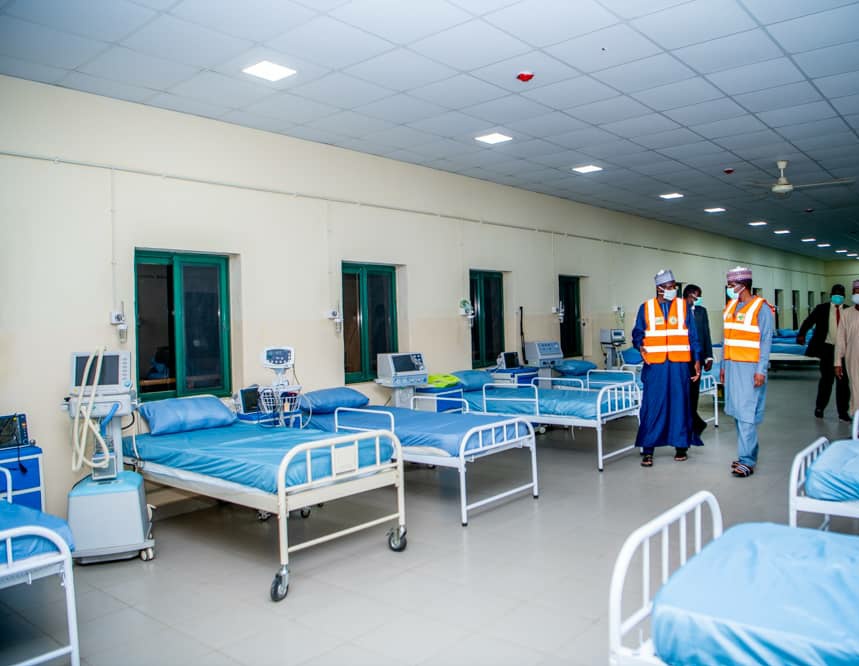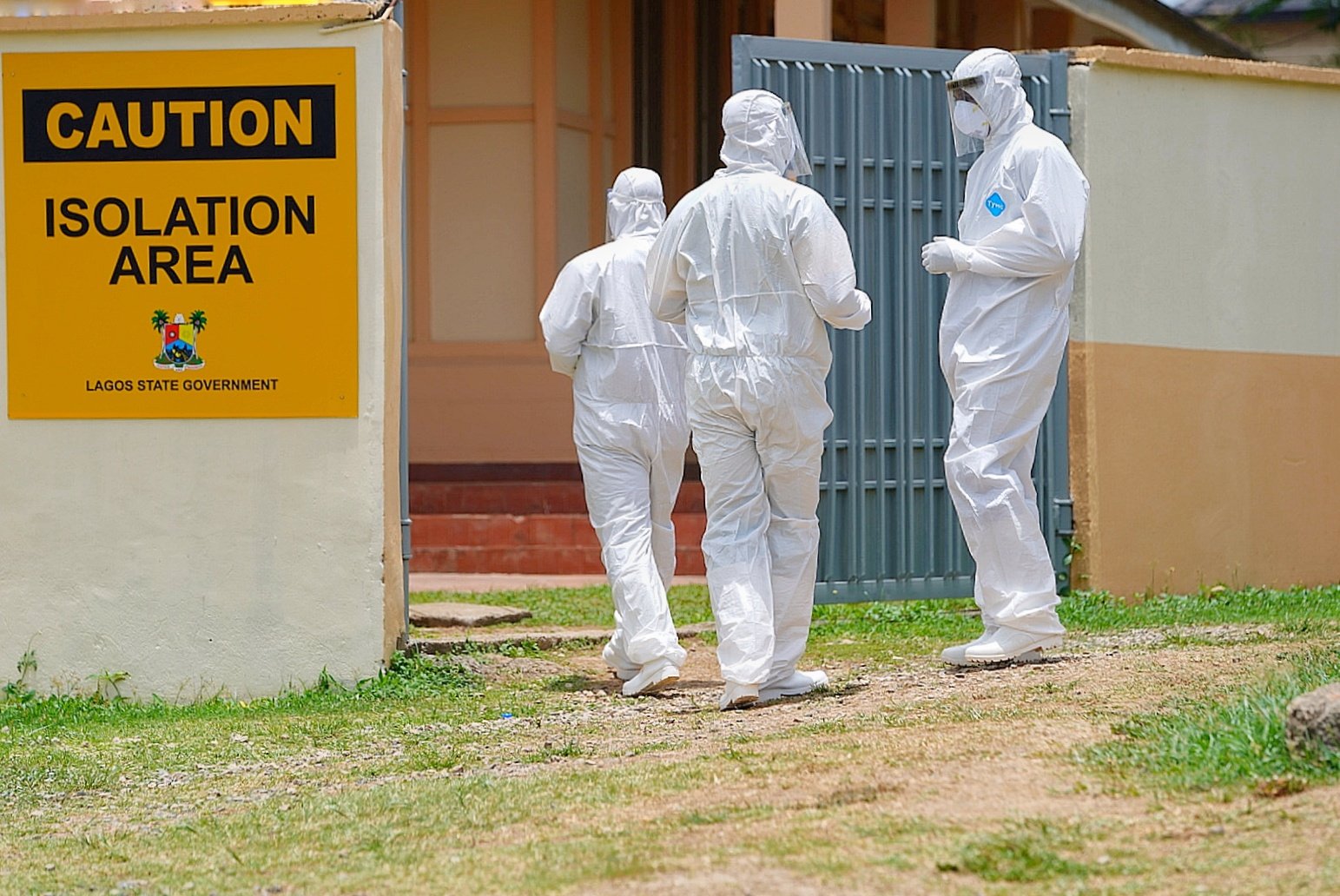BY OLUSEUN OYELEKE
When Covid19 was officially declared a pandemic by the WHO, the world system was shaken at every level, politically, economically, psychologically, religions and also the education sector was not left out of the impact of the SARS Type airborne disease capable of holding the world at ransom. We usually take children from home to school because generally, families especially in Africa have embraced the view that denying a child education is actually tampering with his future or putting a stumbling block in his way. From my experience in the academia, I see that many people believe that without organized education, there may be a stigma on the child, hence, many parents, unwilling to associate with this, makes the provision of organized education as top priority.
In reality, Nigeria cannot afford to have majority of its child population out of school or a shutdown of schools for too long without alternatives to classroom based learning. According to UNICEF, “about 10.5 million of the country’s children aged 5-14 years are not in school. Only 61 percent of 6-11 year-olds regularly attend primary school and only 35.6 percent of children aged 36-59 months receive early childhood education.”
For the ones currently in school, the effect of interrupted learning may prove too costly on a country hoping to develop a workforce for sustainable development. A successful nation needs skillful youths who possess basic and advanced knowledge of how things work coupled with imbibed entrepreneurial abilities which enables them to convert knowledge to wealth. They will be the harbingers of the advancement of a nation. Our education system currently is yet to attain this status; the challenges of access and access to quality education are still areas that need urgent intervention. Hence, its obvious how shutting down schools can now further set us back many years.
Advertisement
However, being left behind in a race has its own benefit and usually when an athlete discovers he’s behindhand, he may choose to add more energy and improvisation to catch up and remain in the race. This is the advantage we can reap from our current position globally. Furthermore, it’s apparent that without quality education laden with content in skill empowerment, entrepreneurship, hands-on craftsmanship, creativity, technical knowhow and social skills, we can’t even qualify in the ‘race to becoming a global economic superpower’ which without qualifying we can’t even compete.
Many can talk down on the necessity and urgency of education reforms and access to quality education but no matter what our views are, it is advanced knowledge that helped our natural resources like oil reached its industrial scale, when natural resources were discovered, the processes, the trade, the logistics were all products of society which evolved faster in these aspects than the ones they came to colonize and this is the same story almost all throughout heavily blessed African nations. Hence with quality education and the right leadership, a nation can reach its full potential.
Education, especially structural education, is a very big player in the Nigeria of our dreams. No level of our education system is inferior as it forms an up-flow from lower to higher level and based on the progressive structure from primary to tertiary, it is almost impossible to successfully skip one level to the other. Even if your child is a natural genius, the system will not naturally allow him to jump from primary 3 to junior secondary. The point here is that like bottles stacked on each other, any challenge on any level can have adverse effects on all levels. The lower level provides the foundations and the higher level provides that expertise.
Advertisement
The way our education system works; the 6-3-3-4 system or any of its modified or proposed version, has for decades meant that structured education is confined to physical edifices ,over 85 % of our schools are classroom based and hence not in any way designed for the severe impact of the pandemic on social gatherings, no one imagined a day will come where people will get scared of even the very air they breathe, and now due to the nature of the covid19 pathogen, pupils and students are at home; from nursery schools to tertiary institutions. While the natural posture taken by many administrators is that the lockdowns is going to be temporary, we cannot afford a nation have its educational system interrupted for even a week. The collective loss of time and resources can cause unintended consequences and unnecessary distractions. Thus, it’s expedient that alternatives to classroom based learning must be embraced wholeheartedly.
Governments around the world have temporarily closed educational institutions in an attempt to contain the spread of the COVID-19 pandemic. These global closures are impacting over 72% of the world’s student population. Several other countries have implemented localized closures impacting millions of additional learners. According to the UN, the closure has affected over 1,268,164,088 learners of the 72.4% of total enrolled learners and 177 country-wide closures
Virtual learning
“Virtual learning is a learning experience that is enhanced through utilizing computers and/or the internet both outside and inside the facilities of the educational organization. The instruction most commonly takes place in an online environment. The teaching activities are carried out online whereby the teacher and learners are physically separated (in terms of place, time, or both)(www.vedamo.com)
With the policies of social distancing which makes physical class appearances improbable, it is of utmost importance to adopt online learning. Learning in a virtual classroom can take many forms, using video conferencing with file sharing capabilities and screen annotations. These allows students to be able to connect online and take live lectures while viewing presentations, white boards and other leaning tools and also interact with tutors. While there are pros and cons to online learning as someone puts it “Online classes also require either a computer or laptop and a reliable internet connection. Not all students have access to these types of resources, whether it is for financial or other reasons, and it can put them at a disadvantage to their other classmates.” But coronavirus has shown us that aside the regrettable loss of human lives which is ultimate, the loss of education can equally prove fatal on the long run and may even lead to further loss of lives
Advertisement
The challenges of virtual learning
Schools all over the world quickly and proactively responded to this pandemic by adopting virtual learning, a culture that is still alien to some. In fact, a friend of mine advised his Post Graduate students that he intends to take them on numerical analysis via remote learning. The student protested by claiming virtual learning is “Advanced technology; a level Nigeria is yet to attain.” .This made myself and my friend laugh, but the common notion that in 2020 remote learning is ‘advanced technology’ and therefore not practicable in non-advanced counties is actually a mindset shared latently by many people, educators and even students alike. So the first step is to demystify the conception that remote technology is out of our reach. This impression is a barrier created by the society we found ourselves in but now, the so-called ‘ advanced technology’ has become compulsory and will remain a permanent feature even after covid-19. It is imperative that we do not further widen the gap that we have spent years trying to close and aiming to catch up with industry best practices in education.
Another common challenge is data. The poverty index in Nigeria according to poverty data World Bank stats is that Country Indicators Poverty headcount ratio puts at $1.90 a day a population of 53.5% .So considering a full course of 90 minutes on Zoom can take as much as 500MB which can cost up to $2 to $3 while a large percentage live below $1 a day will surely be a problem in deploying this across the population, however there can be intervention and MOU between Telcos and government on how a compromise can be reached to handle the cost of data for educational purposes. An alternative to this is use of Radio and TV broadcast which can also achieve some form of learning but without interactivity.
Teacher’s education is another bridge that must be crossed ,many educators till today are alien to the practice of conducting classes online because we never predicted the adverse effect of this lockdown on education and generally not much training was conducted for educators pre-covid 19. However, based on the proliferation of ICT and the ubiquitous presence of online activities many qualified teachers naturally should have gotten to the practice of conducting lectures using instant chat and face time and other communication tools. Those finding online classes strange maybe results of a general attitude of lethargy that many have towards embracing new technology; Teachers must always be ahead and use their own resources to ensue that.
Virtual learning takes place on popular platforms like zoom, hangouts, Facebook and on lots of other platforms. Some are mobile version while some are mobile apps wit PC versions. Often time the basic functionality of this platforms are available to provide services that allow for screen sharing, annotations, video, white boards etc. From experience many students use their mobile phones rather than PC for many reasons like power, data management, handiness, convenience and other factors. Mobile phones especially at sizes of 4 to 5 inch below may pose some challenges in terms of viewing of smaller contents and would have been ideal for all students to attend classes using their PC but considerable knowledge can still be imparted via participation using mobile phones. Optimal learning experiences will be gotten on PC because some subjects cannot be conducted on mobile like computer graphics, programming or technical drawing where leaners will be expected to follow along practically. Alternatively the use of Tablets can equally provide a better learning experience for students at all level.
Advertisement
Then laboratory practicals, luckily while real laboratories cannot be replaced by simulations, yet the use of virtual laboratories can be employed as temporal alternatives. This can enable students engage in some practical session using simulated environments, EDA tools and VR where necessary. Virtual learning should also be able to model the real school environment especially in promoting online communities among intra-disciplines just as it happens in the real school environment. These communities include student groups, social, business, religious and others. One importance of education aside leaning is interactions and building of social relationships. Social distancing cannot affect social media relationships especially among students. This virtual environment can even accelerate student interactions to the benefit of their overall social health.
Finally, what about the children in rural areas who haven’t had the opportunity to experience learning at this level, they have equal rights to education as well and while they live in areas where internet infrastructures may impair their opportunities to virtual learning they can as well be empowered by educational contents provided on mobile devices and also provision of solar powered charging points. To enable them experience continuing learning even after the pandemic.
In conclusion the aim of this article is to show that irrespective of these problems the ultimate goal of continuing lessons is not optional for any nation that wants to sustain its development as we cannot afford the luxury of an educational hiatus.
Advertisement
Oyeleke, a lecturer, author and researcher, can be reached via [email protected]
Advertisement
Views expressed by contributors are strictly personal and not of TheCable.






